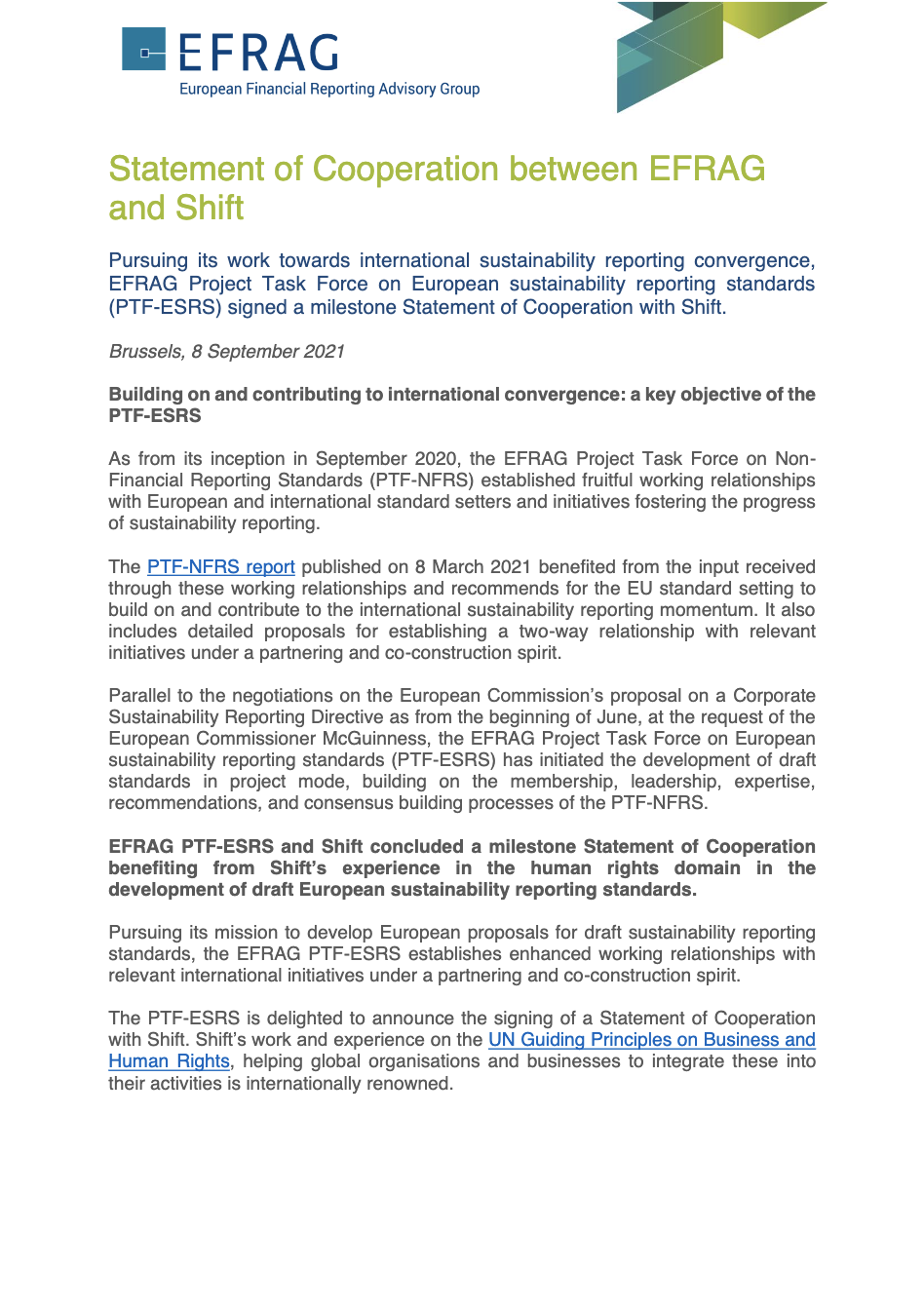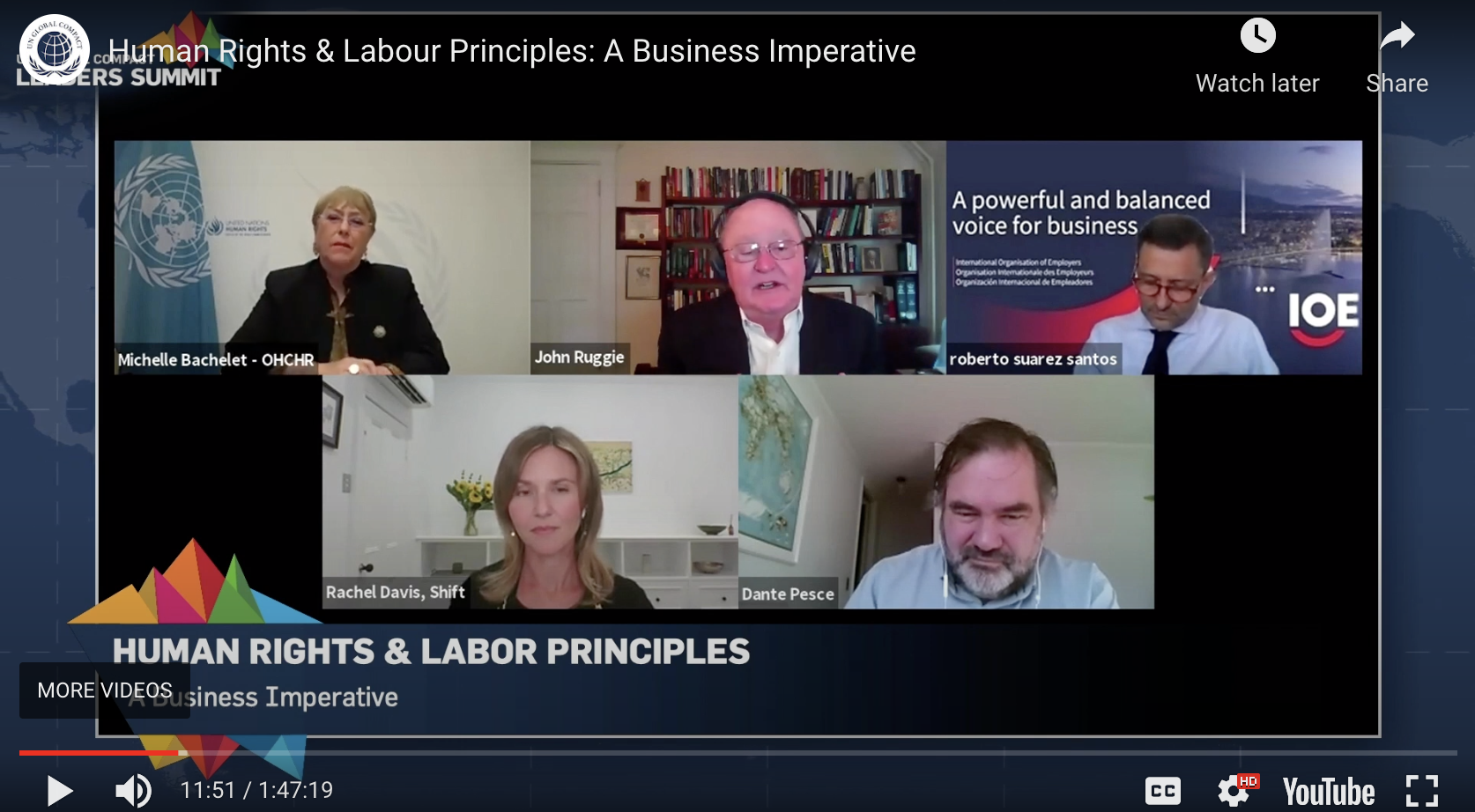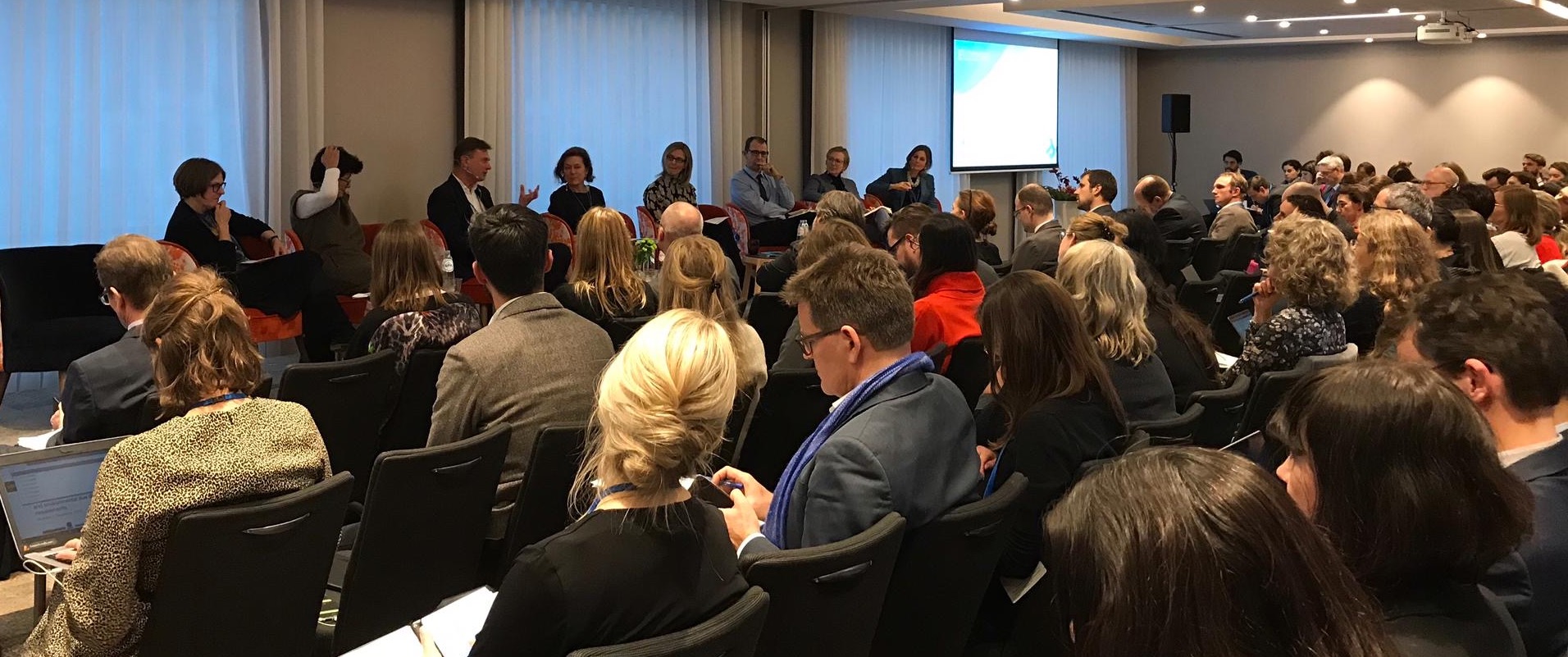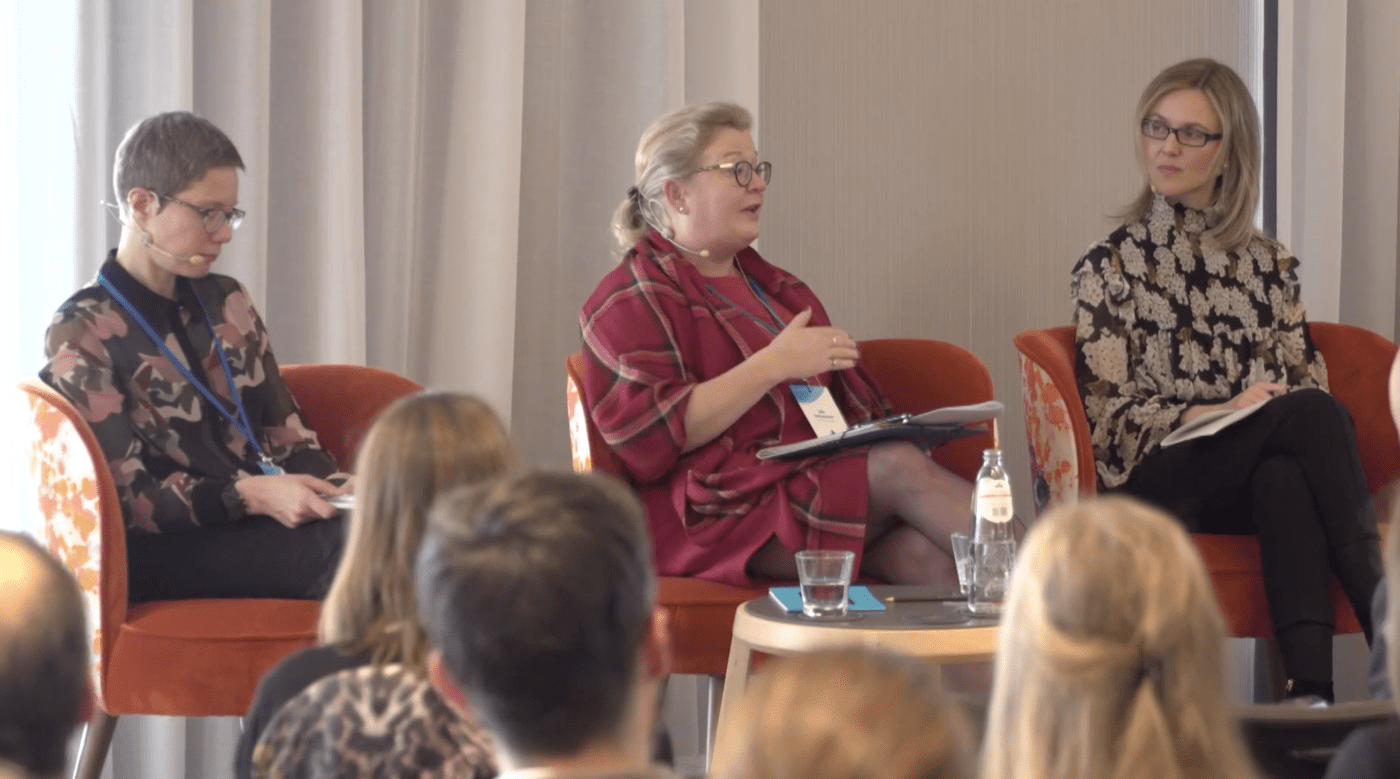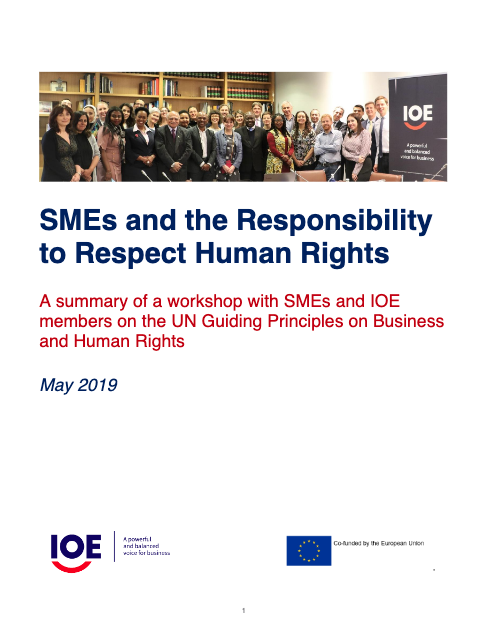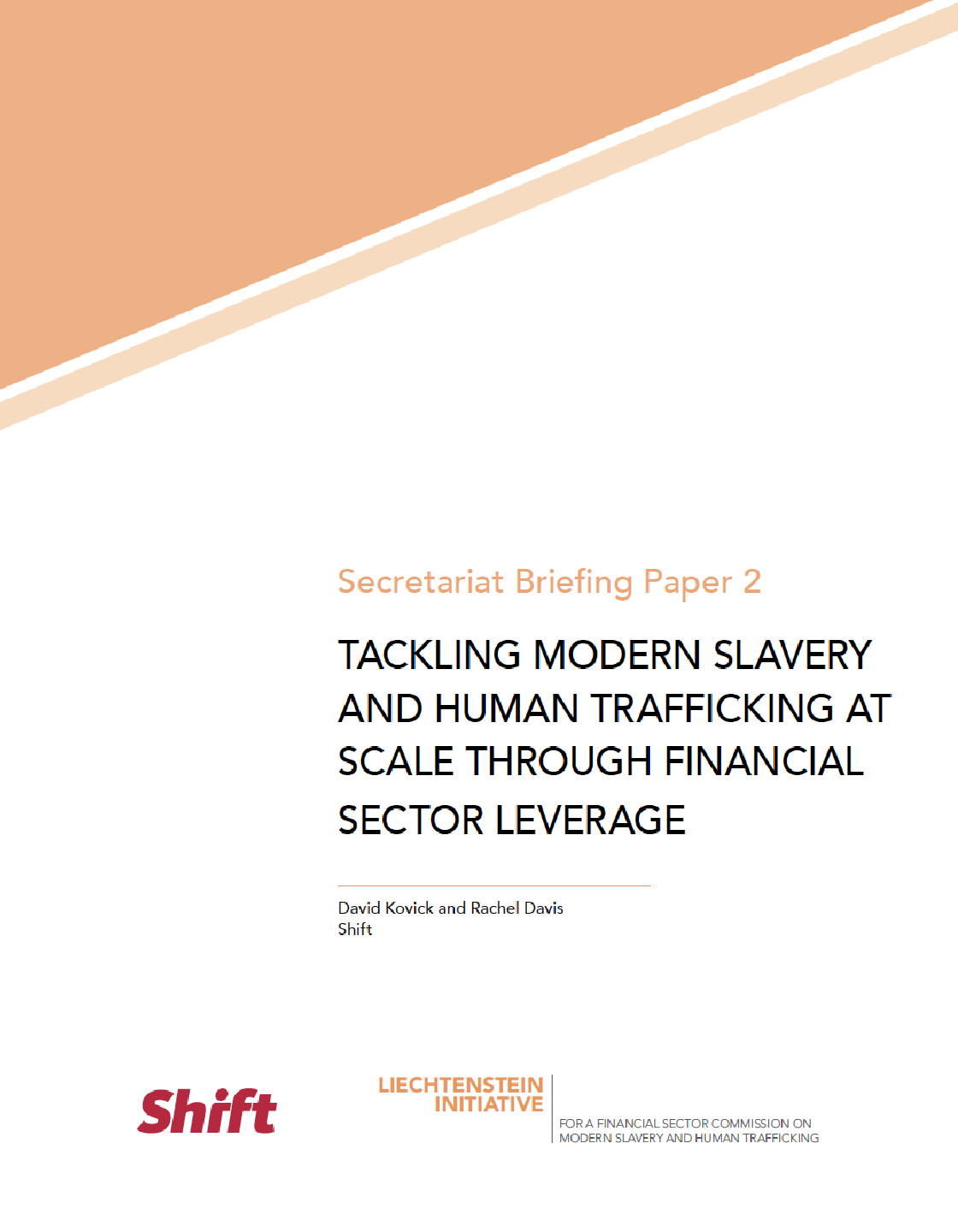On October 5, 2021 GRI launched their revised Universal Standards to help companies report on their impacts on the economy, planet and people. Shift’s President Caroline Rees joined Matthias Thorns (IOE) and Jyrki Raina for a conversation on what the update means for companies.
Resource Type: Engagements
Statement of Cooperation between EFRAG and Shift
The PTF-ESRS announced the signing of a Statement of Cooperation with Shift. Both organizations will put together their experience and expertise to encourage the swift development of European sustainability reporting standards in the social domain and at the same time the progress of converged standards at international level. Each organization will contribute to key technical projects of its counterpartin the social domain.
Human Rights & Labor Principles: A Business Imperative
This High-Level dialogue was hosted by the UN Global Compact in the context of the 10th anniversary of the UN Guiding Principles on Business and Human Rights. It was moderated by Shift’s Vice President, Rachel Davis. Panelists include the author of the UN Guiding Principles, John Ruggie; UN High Commissioner for Human Rights Michelle Bachelet; the Secretary-General of IOE, Roberto Suarez Santos; and the Chair of the UN Working Group on Business and Human Rights, Dante Pesce.
The “S” in ESG: Best Practices and Way Forward?
On July 1, 2021, Shift, Frank Bold and the Thomson Reuters Foundation hosted a discussion to explore what’s needed for companies to better measure and report on their social risks and impact. A transcription of Professor Ruggie’s keynote remarks is available here.
The event featured introductory remarks by Professor John Ruggie. Participants also included: Irit Tamir (Oxfam), Lauren Compere (Boston Common Asset Management), Julie Vallat (L’Oréal), Filip Gregor (Frank Bold), Tom Dodd (EU Commission), Giulia Corinaldi (TRF) and Caroline Rees. (Shift).
Conference ‘Business & Human Rights: Towards a Common Agenda for Action’
In December 2019, Shift and the Finnish Presidency to the EU Council co-organized the conference ‘Business & Human Rights: Towards a Common Agenda for Action’, a space where businesses, government representatives and civil society organizations engaged in a multi-stakeholder dialogue to discuss business and human rights and, in particular, a collaborative and constructive way forward on this critical agenda.
In his initial remarks, Professor John Ruggie emphasized that while we often hear the term ‘smart mix’ being employed to mean voluntary measures, the concept is broader and should be understood to include mandatory measures. (Watch the full video)
During the conference, participants discussed the role of state financing in promoting human rights due diligence; the role of regulation in a smart mix to foster business respect for human rights; and the use of collective leverage and cooperation to improve human rights outcomes. The conference concluded with the launch of Agenda for Action -the outcome paper of the conference.
SMEs and the Responsibility to Respect Human Rights
In April 2019, Shift and the International Organisation of Employers (IOE) co-convened a workshop to explore the challenges, experiences and leading practices of small and medium enterprises (SMEs) in fulfilling their responsibility to respect human rights. This summary note, published by IOE, provides an overview of the key takeaways.
Addressing Sector-Wide Risks Through Negotiated Covenants in the Netherlands
Seven agreements have been signed as part of this process: garment and textile | banking | gold | natural stone (pilot) | food products | insurance | pension funds |
Shift is pleased to be providing expert support to the SER, and the Dutch Ministry of Foreign Affairs, as part of a pioneering process that has brought together companies, governments, unions and civil society, across key business sectors, to try to prevent human rights risks and ensure responsible business conduct in critical global value chains.
The process also seeks to address environmental impacts, corruption and taxation practices and other negative impacts covered by the OECD Guidelines for Multinational Enterprises.
“In our work on fostering sustainable supply chain management among Dutch industry, Shift has been extremely helpful in elevating the policy discussion and business practice in the area of business and human rights. The Shift team’s unique combination of strategic policy advice and practical experience with companies and other stakeholders has been invaluable to our work.”
Mariëtte Hamer, President, Social and Economic Council of the Netherlands
This work is being undertaken in close collaboration with the SER – the advisory and consultative body of employers’ representatives, union representatives and independent experts that has been fostering sustainable supply chain management among Dutch industry since 2008. | See our explanatory note on prioritization of human rights risks prepared for the SER
In each sector, parties have identified severe risks that they are facing and developed individual commitments and collaborative approaches to address them. With the support of Shift, the SER has developed guidance -contained in its Advisory Report– to help parties ensure that the measures developed are credible, and aligned with international standards.
The expectation is that parties:
- Use credible methodologies, aligned with leading international frameworks, to identify sector-wide human rights, environmental, corruption and related risks;
- Identify collaborative approaches to building and exercising the leverage of sectors and their stakeholders to address such risks;
- Involve relevant stakeholders in credible, dialogue-based multistakeholder processes.
Shift has played a key role in building the capacity of all parties to play their envisioned roles as leaders, participants and conveners of a credible process aiming to assess and address sector-wide risks. This support has included workshops for a number of sector associations, together with expert stakeholders, held in The Hague and hosted by the SER. | Learn more about how Shift facilitates multistakeholder dialogue on business and human rights
Over the past years, Shift has also supported implementation of a number of specific agreements, most notably the Dutch Banking Sector Agreement. Our support to the parties involved in that agreement has included:
- Facilitating a workshop on human rights reporting, which led to the issuance of the first human rights reports by ING and Volksbank (Dutch) and of a second report by ABN AMRO.
- Providing expert input and leading the drafting of paper capturing learning from the “enabling remedy” working group, which among other themes, included exploring the concept of a “remedy ecosystem.”
- Supporting the “value chain mapping” working group by helping to shape its methodology and facilitating the process for the cocoa value chain mapping and part of the process for the palm oil value chain mapping.
In 2017, the Dutch Government recommitted itself to the process and is scheduled to undertake an evaluation in late 2019. The coalition agreement includes a provision to consider binding measures in case insufficient progress is deemed to be made. Shift looks forward to being a part of the evaluation process and discussions about what more is needed.
To learn more about the Sector Agreements, click here.
Shift and Former UN Human Rights Chief to Advise the International Olympic Committee on Developing a Human Rights Strategic Framework
New York, NY. – Shift Co-Founder Rachel Davis has joined efforts with former UN High Commissioner for Human Rights, Prince Zeid Ra’ad al-Hussein, to support the International Olympic Committee (IOC) in developing a strategic framework on human rights.
Rachel Davis and Prince Zeid will be working hand-in-hand with high-level IOC officials to conduct an in-depth assessment, informed by internal and external stakeholder consultation. Together, they will deliver high-level, strategic recommendations to the President and Executive Board of the IOC to set the foundation of a comprehensive human rights strategy and future work of the Human Rights Advisory Committee.
Since 2018, Shift has supported the IOC’s ongoing efforts to address human rights challenges, including those connected to bidding and candidature processes for the Olympic Games, and to the IOC’s role as the leader of the Olympic Movement.
Shift is driven by its commitment to play an objective, critical and transformative role in sport, and will continue to work side-by-side with other stakeholders to promote meaningful change in the sector.
To learn more, visit our dedicated page on Sports and Human Rights.
Tackling Modern Slavery through Financial Sector Leverage
This briefing paper was commissioned by the United Nations University, as part of the Liechtenstein Initiative for a Financial Sector Commission’s efforts to push beyond the boundaries of compliance towards creative financial sector action to prevent and address modern slavery and human trafficking.
Senior Advisor David Kovick and Managing Director, Rachel Davis provide observations and specific examples of what implementation of the UNGPs and related efforts by financial institutions looks like in practice today, including leading approaches, recurring challenges and immediate opportunities.
Business and Human Rights in New Zealand
This series took place the week of August 8, 2016 as part of the New Zealand Human Rights Commission inaugural Business and Human Rights Forum.
In collaboration with the New Zealand Human Rights Commission and the New Zealand Superannuation Fund, Shift is pleased to have delivered an education and awareness series about the Guiding Principles for government representatives, parliamentarians, investors, directors, CEOs, company practitioners and civil society representatives in New Zealand. The series took place in August 2016.
Topics that were addressed during the weeklong series in Wellington and Auckland include global uptake of the Guiding Principles, various governments’ actions on business and human rights including in the areas of procurement and disclosure, sharing of leading practices by investors in assessing human rights risks, the role of board directors in overseeing their company’s management of human rights, and exploration of specific business and human rights risks in the New Zealand context. The Australian Human Rights Commission also participated in the program as part of their collaboration with the Commission of New Zealand.
